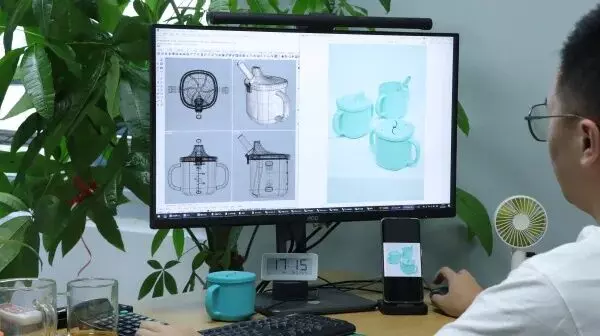Silicone Products Manufacturer – Innovative Solutions for Modern Industries
image for illustrative purpose

Introduction to Silicone Product Manufacturing
Silicone products have become essential in multiple industries due to their flexibility, temperature resistance, and adaptability. A silicone products manufacturer focuses on creating precision-molded parts that meet the needs of medical, automotive, food-grade, and consumer sectors. These manufacturers combine advanced materials and engineering to deliver high-performance silicone components.
What Makes Silicone an Ideal Material
Silicone offers versatility that other polymers cannot match. It performs well under extreme temperature ranges and maintains its form and elasticity even in challenging environments. Manufacturers prefer silicone because it can be molded into complex shapes while maintaining dimensional accuracy.
Key Advantages of Silicone Material
- High resistance to heat and chemicals
- Excellent electrical insulation properties
- Flexibility across wide temperature variations
- Low compression set for reliable performance
The Role of a Silicone Products Manufacturer
A silicone products manufacturer handles the complete process — from design and prototyping to mass production. They work closely with clients to meet exact specifications, ensuring each part fits its intended use. The focus is on precision, consistency, and customization for different market sectors.
Core Capabilities of Manufacturers
- Compression molding for simple shapes and cost-effective production
- Liquid Silicone Rubber (LSR) injection molding for complex geometries and high-volume orders
- Extrusion for continuous silicone tubing and profiles
- Overmolding for bonding silicone with plastic or metal components
Custom Silicone Products for Specialized Applications
Every industry has unique product requirements. That’s why custom silicone products have gained importance. Manufacturers design and produce components tailored to specific performance, design, and color needs.
Examples of Custom Silicone Products
- Medical seals, valves, and tubing
- Silicone gaskets and keypads for electronics
- Food-grade silicone molds and kitchenware
- Automotive seals and vibration control components
- Custom silicone wearable and smart device parts
The Process of Manufacturing Custom Silicone Parts
Creating custom silicone parts involves several precise steps that ensure accuracy and consistency.
Step 1: Product Design and Engineering
Manufacturers use CAD models to design silicone parts according to specific requirements. Each design is optimized for moldability, thickness, and functionality.
Step 2: Material Selection
Depending on the use case, different silicone grades are chosen — medical-grade, food-grade, or industrial-grade. Each type offers performance characteristics suitable for its environment.
Step 3: Mold Fabrication and Prototyping
Molds are created using CNC machining or EDM technology. Prototyping ensures the design meets all dimensional and functional goals before full-scale production.
Step 4: Production and Quality Testing
Once approved, production begins using compression or injection molding. Every batch undergoes visual and mechanical testing to verify performance standards.
Industries Served by Silicone Product Manufacturers
A reputable silicone products manufacturer supplies components to a wide range of industries.
Medical and Healthcare Sector
Medical-grade silicone parts are used in devices such as catheters, syringes, and respiratory equipment. Silicone’s biocompatibility and resistance to sterilization make it ideal for healthcare applications.
Automotive and Aerospace
In these industries, silicone is used for gaskets, seals, and connectors that withstand high temperatures and pressure variations.
Food and Beverage
Food-grade silicone molds, seals, and tubes are common in food processing, packaging, and kitchen appliances.
Consumer Electronics
Silicone is used in keypads, switches, protective covers, and wearables due to its flexibility and resilience.
Silicone Injection Molding Technology
Many manufacturers rely on Liquid Silicone Rubber (LSR) injection molding to produce high-quality components. This process enables automated, repeatable production with tight tolerances.
- Benefits of LSR Injection Molding
- Precision molding for intricate designs
- High-volume capability with minimal waste
- Enhanced consistency across production runs
- Compatibility with overmolding applications
Quality Control in Silicone Manufacturing
Quality is critical in silicone production. Manufacturers implement strict inspection procedures to ensure each part meets required standards.
Common Quality Control Techniques
- Dimensional checks with optical measurement systems
- Tensile and compression testing
- Surface finish and visual inspections
- Compliance with FDA, ISO, and RoHS standards
Choosing the Right Silicone Products Manufacturer
When selecting a silicone manufacturer, businesses should consider technical expertise, manufacturing capability, and customization options.
Factors to Evaluate
- Experience in multi-industry silicone production
- Access to advanced molding technologies
- Support for prototyping and design development
- Ability to provide custom silicone formulations
The Future of Silicone Product Manufacturing
The silicone industry continues to evolve with automation, material innovation, and eco-friendly practices. Manufacturers are developing recyclable silicone blends and integrating digital monitoring systems to optimize production.
Trends Driving Innovation
Smart silicone materials with conductive properties
Medical-grade silicone for wearable technology
High-precision micro-molding for compact devices
Sustainable silicone production using green energy
Conclusion
A silicone products manufacturer plays a crucial role in producing parts that support technological growth and industrial innovation. With expertise in molding, material selection, and customization, these manufacturers create custom silicone products that serve diverse sectors — from healthcare to electronics. As industries advance, silicone continues to be the material of choice for performance-driven solutions.

